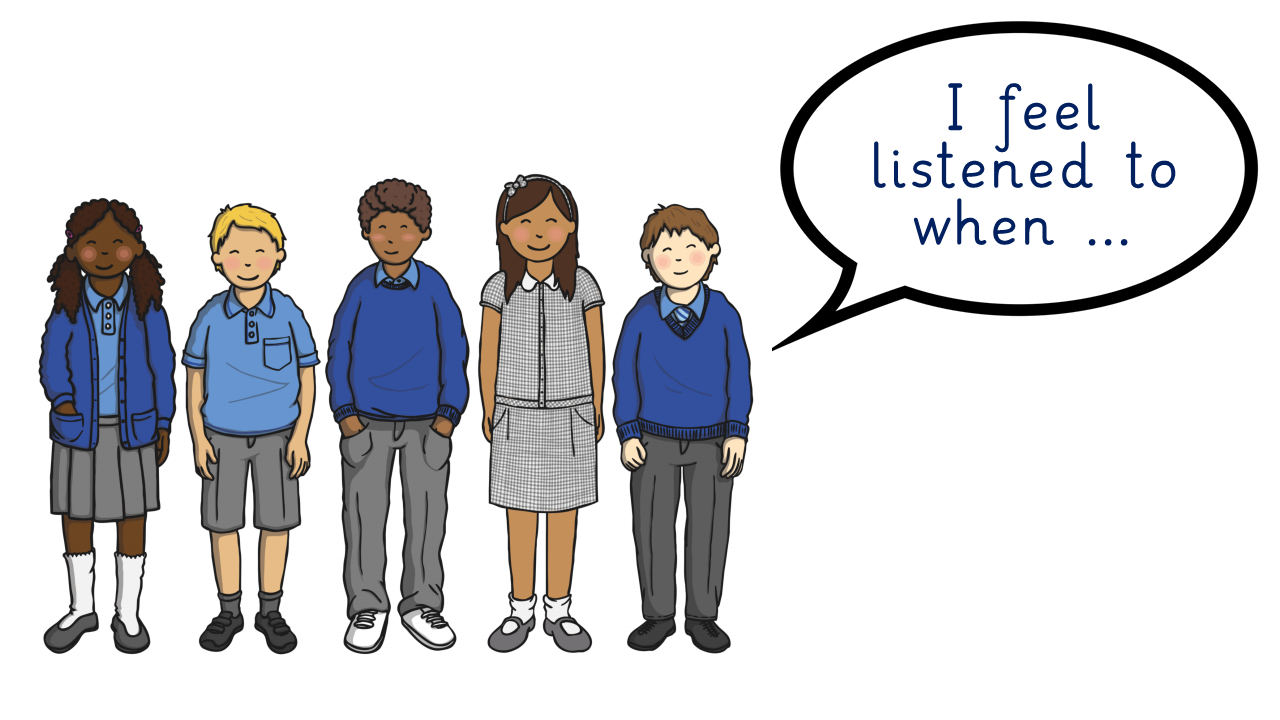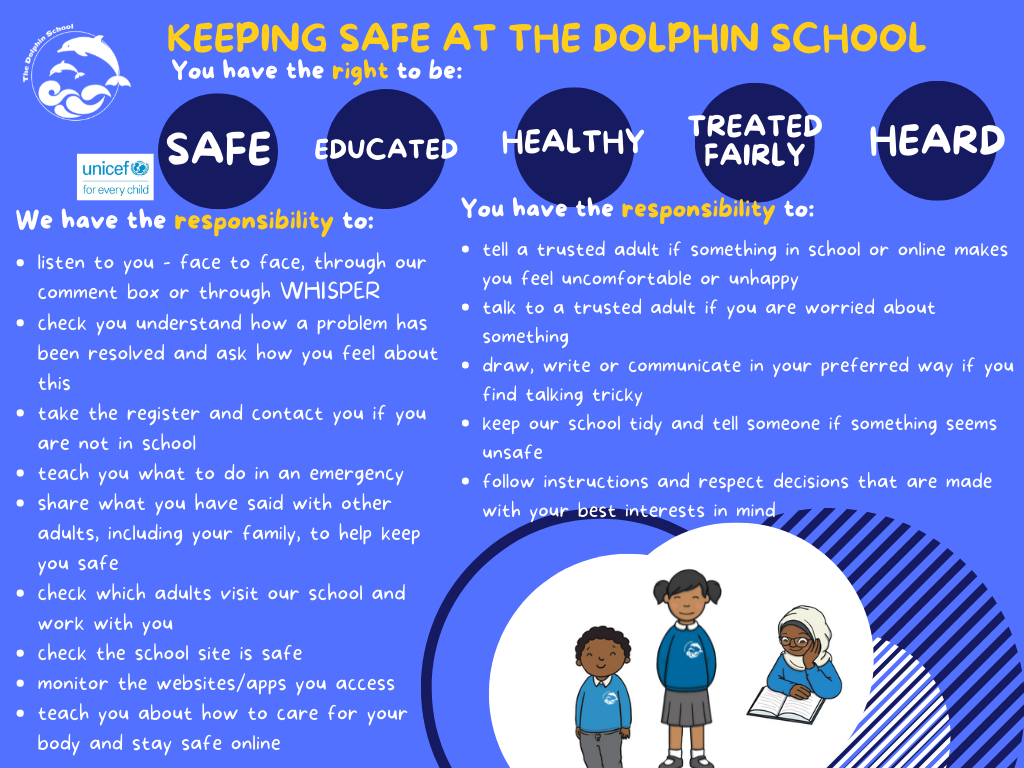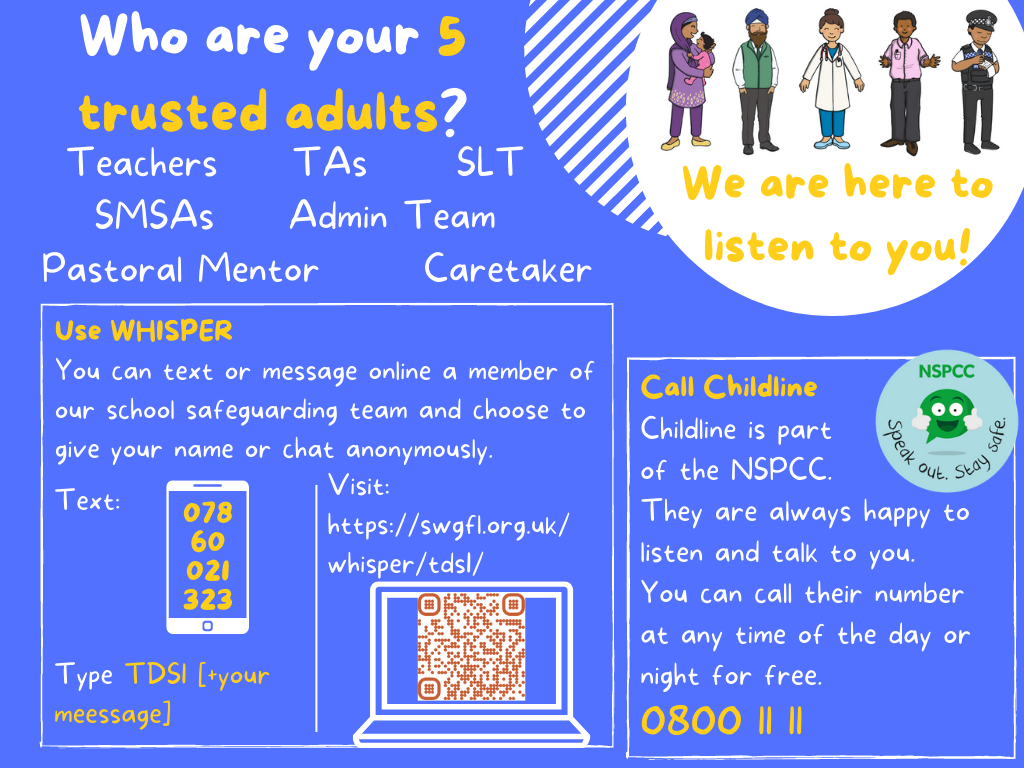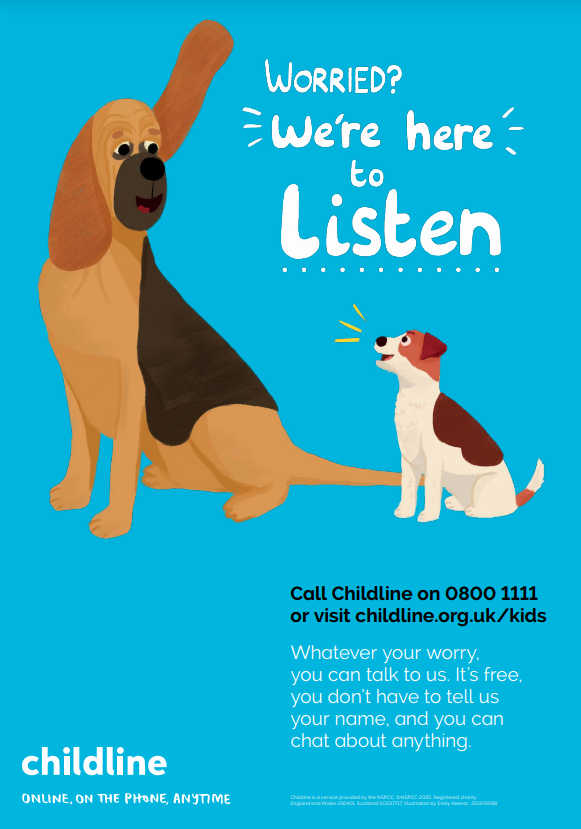Listening to our children
Feeling listened to is incredibly important. It makes us feel like we matter.
It is a way we can tell if we are being respected and taken seriously.
Here at The Dolphin School, we want all of our children to feel:
- listened to
- acknowledged
- heard
- recognised
- accepted
- valued
- respected
The United Nations Convention on the Rights of the Child says that all children and young people have the right to express thier views freely about anything that affects them.
We build strong, effective partnerships with our children so that they feel confident in coming to speak to us if they have any worries or concerns. We provide regular opportunities for our children to talk to each other and staff.
We encourage all of our children to identify at least 5 adults they trust who they could talk to.

As part of listening to our children, they:
- may be asked to write down or draw what they want to say;
- will be given time to speak;
- will be looked at;
- will be called by their name;
- will be told what will happen next;
- may be told later what happened afterwards;
- may have their comments or concerns passed on to others so they can help too (SLT/their family/other organisations)




Childline
Childline is here to help anyone under 19 in the UK with any issue they’re going through.
You can talk about anything. Whether it’s something big or small, their trained counsellors are here to support you. It is a free, private and confidential service where you can talk about anything.
Visit their website to find out more about to get in contact with Childline.
Report abuse in Education
The NSPCC are working with the Department of Education to provide a bespoke helpline for children and young people who've experienced abuse at school, and for worried adults and professionals that need support and guidance.
If you are concerned about something, you can contact the NSPCC helpline Report Abuse in Education on 0800 136 663 or email help@nspcc.org.uk.
